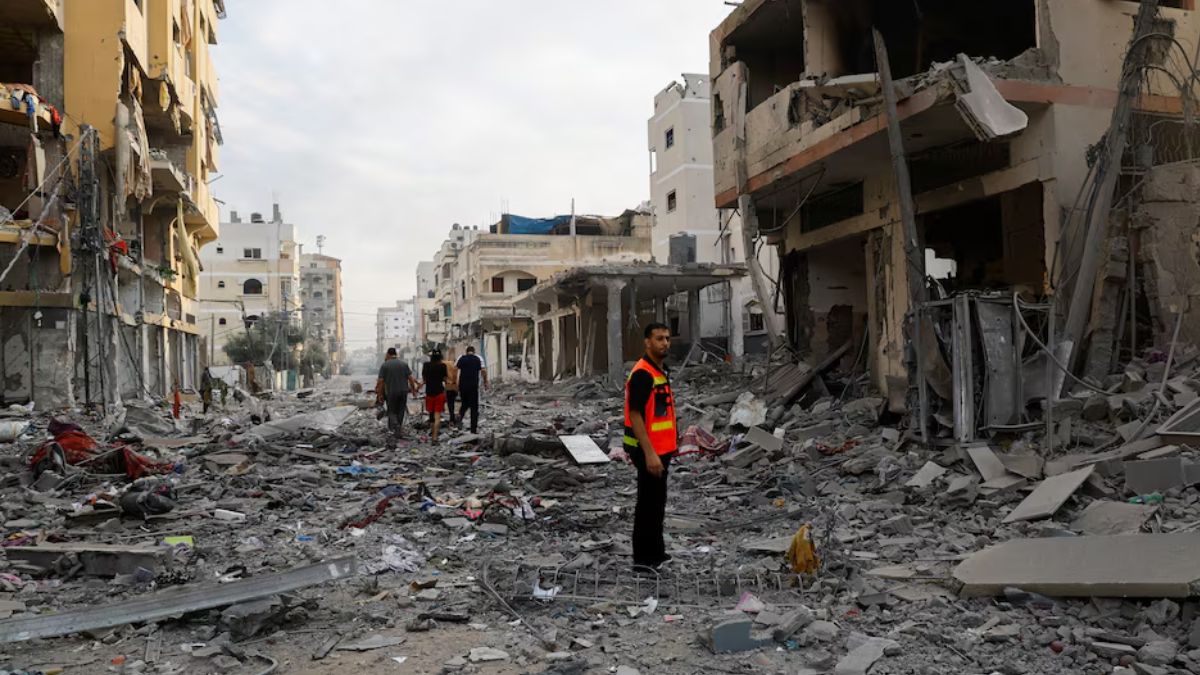Israeli forces have continued their intense military operations in the Gaza Strip, focusing on areas near Khan Younis, as the international community pushes for a ceasefire to prevent the conflict from spiraling into a larger regional war involving Iran and its proxies.
On Monday, Palestinian medical officials reported that at least 18 people were killed and several others wounded in Israeli strikes on Khan Younis. The strikes have triggered further evacuations, with more families fleeing from areas under new evacuation orders.
In other parts of Gaza, Israeli airstrikes continued to cause casualties. Five people were killed in an airstrike on the Zeitoun neighborhood of Gaza City, and two others lost their lives in Rafah, near the border with Egypt, according to local medics.
As the violence persists, Hamas has expressed skepticism regarding the latest round of peace talks brokered by Egypt and Qatar, scheduled to take place on Thursday. The group has stated that it has seen no signs of willingness from Israel to engage in meaningful negotiations. On Sunday, Hamas called for mediators to pressure Israel into accepting a ceasefire proposal that was reportedly based on ideas from U.S. President Joe Biden—a proposal that Hamas had already agreed to. The group criticized further negotiations as merely providing cover for continued Israeli aggression.
According to sources close to Hamas, the group believes that the renewed push for talks is a coordinated effort with Israel to prevent responses from Iran and Hezbollah following the assassination of Hamas leader Ismail Haniyeh in Tehran and a senior Hezbollah commander in Lebanon. One Palestinian official involved in the mediation efforts noted that, while Hamas is open to considering a workable plan, the group currently doubts Israeli Prime Minister Benjamin Netanyahu’s commitment to reaching a deal.
Meanwhile, the risk of a broader conflict looms large. The United States has ordered a guided missile submarine to the Middle East, and the Abraham Lincoln strike group has accelerated its deployment to the region. Israeli Defence Minister Yoav Gallant was reported to have informed U.S. Defense Secretary Lloyd Austin that Iran is preparing for a large-scale military attack on Israel, according to a report by Axios journalist Barak Ravid.
The potential for escalation highlights the fragility of the situation in the Middle East, which has been significantly destabilized by the ongoing war in Gaza, now in its 11th month. The conflict escalated dramatically on October 7, 2023, when Hamas launched a surprise attack on Israeli communities surrounding Gaza, killing approximately 1,200 people and taking over 250 hostages. In retaliation, Israel has launched a devastating campaign in Gaza, resulting in the deaths of around 40,000 people, according to the Palestinian health ministry, and displacing much of the population.
In one of the latest incidents, Israeli strikes on a school building in Gaza City on Saturday killed scores of people. The Israeli military claimed the strike targeted fighters from Hamas and Islamic Jihad, although both groups have denied that their fighters were present in the school. Health officials in Gaza claim that the majority of casualties in the conflict have been civilians, while Israel asserts that at least one-third of the deceased were combatants. Israel has also reported the deaths of 330 soldiers in Gaza.

